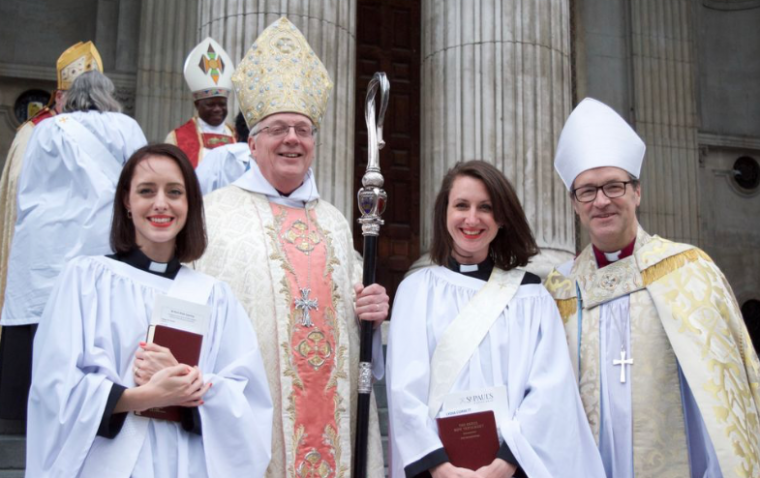Is the tide finally about to turn for women in leadership in evangelical churches?

The moral arc of the universe is long, but it bends towards justice. The phrase, attributed to Dr Martin Luther King, is often used in tough times or when things seem bleak, as a reminder that everything will be alright in the end.
As someone who fully supports women being visible as leaders in every level of Church leadership, it's obvious that, in spite of some recent victories, full equality for women in the Church is still some way off.
The majority of the world's Christians worship in churches which don't allow women to lead. It can seem like a never ending battle. Recently, Vicky Walker wrote a calm, thorough piece which outlines her anger at the gender balance of a forthcoming conference.
'Can we one day get to a point where women aren't tucked away to discuss why society struggles with them and can instead be welcomed and celebrated for their achievements and contributions to say... business?' she wrote.
In response, she received a number of comments which often come up in response to articles like this. 'They tried their best'... 'They picked the best speakers and most of them are men'... 'There is a women's stream'... etc. While many of these responses were offered with good intentions, none of them solve the core problem Walker was identifying. In too many Christian events, gender parity on platforms is a pipe dream.
For this reason, it is nothing short of thrilling to see one of the UK's most important churches begin to step up to the plate. This week, Holy Trinity, Brompton (HTB) announced the 'arise.' conference which will take place in November.
Its aim is to gather, 'young women in HTB network churches who are called to ordained leadership but who have unanswered questions – Is God really calling me? What does it look like for young women to lead churches? How would leading a church work alongside my relationships and family life?'
This is exciting on a number of levels. Firstly, as one of UK evangelicalism's most influential churches, the impact this could have is profound. For the first time, as far as I'm aware, HTB and its network of over 30 church plants are actively promoting women's ministry. Though a number of female clergy have come through the HTB Network in recent years, there has been little in the way of a co-ordinated effort.
As one of the leading voices in British evangelicalism, HTB holds considerable persuasive powers. Other churches and networks will take note and hopefully prioritise their own efforts to empower women's leadership.
Secondly, I'm excited because the potential of the women who have felt unable to follow their call to leadership could now be unlocked. Having been around HTB churches and events, they are teaming with energy, creativity and dynamism. But the majority of the people at the front are white, middle-class, able-bodied men.
While there is a lot more that could be done to pursue diversity, the capabilities that will be unlocked by encouraging women to follow the call into leadership are vast. There is then the possibility of a 'snowball' effect which means a second and third generation of women leaders will grow up as a result of seeing the pioneers who follow this call taking their place.
Thirdly, this is an exciting development because it very practically deals with lots of the objections mentioned earlier. When criticised for a lack of women on panels and in speaking slots, conference and event organisers will often complain that the pool isn't big enough. While this isn't a good enough excuse, it's still true that there are far fewer women 'on the circuit'.
By intervening and specifically aiming to encourage women to receive the training which will get them 'on the circuit' in the first place, this gathering is beginning to tackle that problem.
Last year, I wrote a piece more in hope than expectation, that women should be leading at least half of our big churches. In it I said that visibility was a major barrier to this happening: 'If women don't see other women leading large churches, then a lack of role models and a tacit feeling that it isn't a job they'd be encouraged to do can take hold.'
This remains true, but I am hopeful that HTB might be about to light the blue touchpaper which causes a revolution in the evangelical churches of the UK and sees an explosion in the ministry of women. All power to them.
Follow Andy Walton on Twitter @waltonandy











